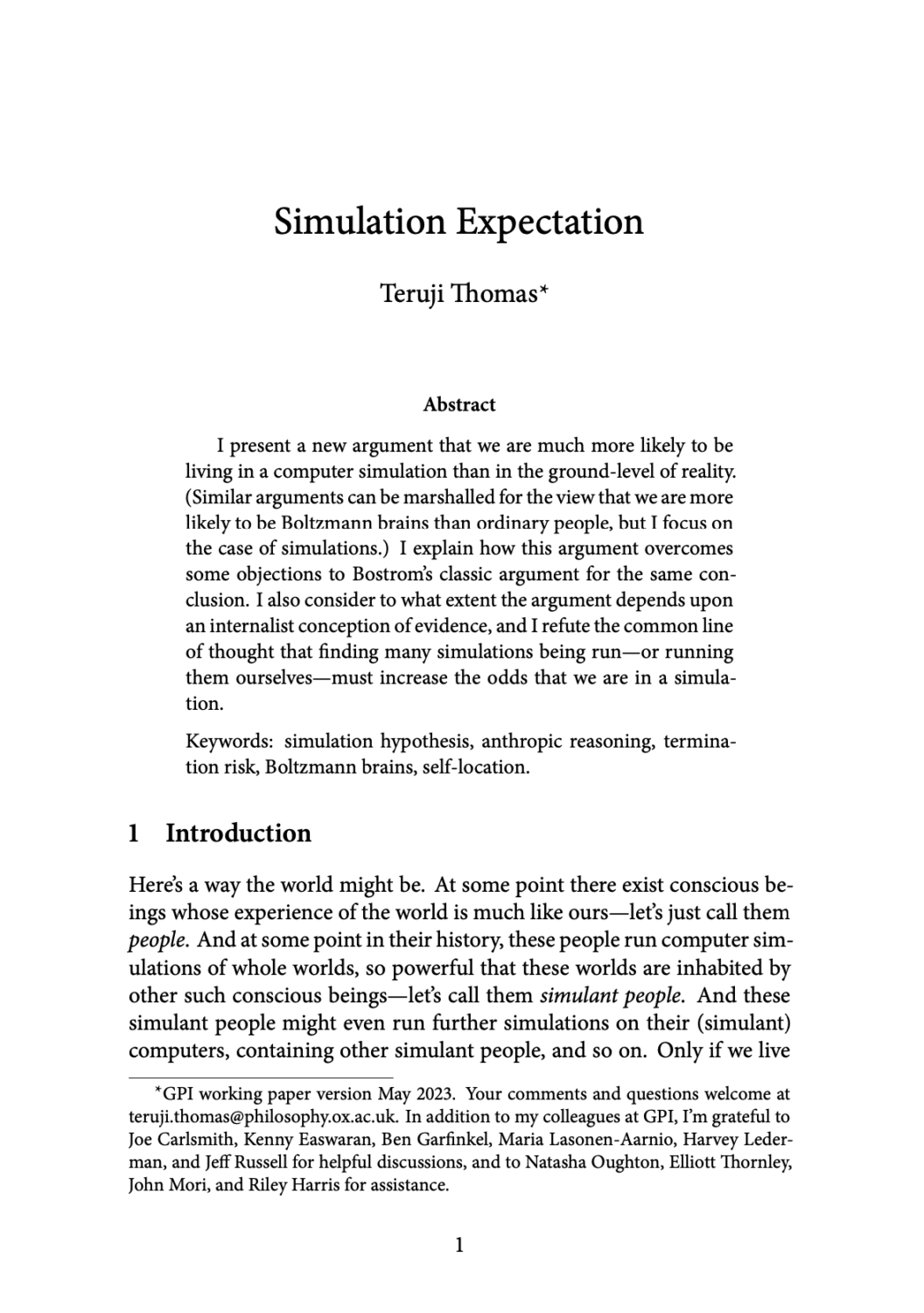Simulation expectation
Teruji Thomas (Global Priorities Institute, University of Oxford)
GPI Working Paper No. 16-2021
I present a new argument that we are much more likely to be living in a computer simulation than in the ground-level of reality. (Similar arguments can be marshalled for the view that we are more likely to be Boltzmann brains than ordinary people, but I focus on the case of simulations.) I explain how this argument overcomes some objections to Bostrom’s classic argument for the same conclusion. I also consider to what extent the argument depends upon an internalist conception of evidence, and I refute the common line of thought that finding many simulations being run—or running them ourselves—must increase the odds that we are in a simulation.
Other working papers
On two arguments for Fanaticism – Jeffrey Sanford Russell (University of Southern California)
Should we make significant sacrifices to ever-so-slightly lower the chance of extremely bad outcomes, or to ever-so-slightly raise the chance of extremely good outcomes? Fanaticism says yes: for every bad outcome, there is a tiny chance of of extreme disaster that is even worse, and for every good outcome, there is a tiny chance of an enormous good that is even better.
The case for strong longtermism – Hilary Greaves and William MacAskill (Global Priorities Institute, University of Oxford)
A striking fact about the history of civilisation is just how early we are in it. There are 5000 years of recorded history behind us, but how many years are still to come? If we merely last as long as the typical mammalian species…
Three mistakes in the moral mathematics of existential risk – David Thorstad (Global Priorities Institute, University of Oxford)
Longtermists have recently argued that it is overwhelmingly important to do what we can to mitigate existential risks to humanity. I consider three mistakes that are often made in calculating the value of existential risk mitigation: focusing on cumulative risk rather than period risk; ignoring background risk; and neglecting population dynamics. I show how correcting these mistakes pushes the value of existential risk mitigation substantially below leading estimates, potentially low enough to…

